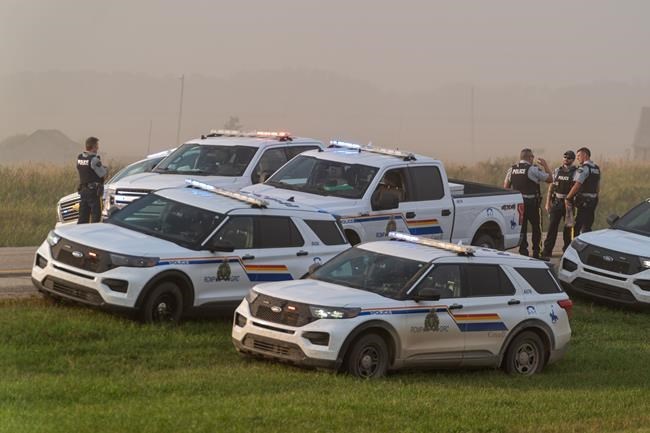SASKATOON — Inquests examining the Saskatchewan stabbing rampage that left 11 people dead and 18 injured are tentatively scheduled for early next year.
The Saskatchewan Coroners Service announced Wednesday the two inquests are set for early January 2024. Chief Coroner Clive Weighill said he had expected the inquests to take place this spring or summer, but the investigation is complex.
"RCMP is still receiving new information," Weighill said in a news release.
"We need to ensure that all aspects of the investigations are complete before we can move ahead to ensure the inquest is as comprehensive and well-informed as possible.”
One will focus on the deaths on the James Smith Cree Nation and in the nearby village of Weldon northeast of Saskatoon last September.
The other will focus on suspect Myles Sanderson, who died in police custody three days after the stabbings. Police have said the 32-year-old went into medical distress shortly after he was arrested near Rosthern, Sask.
Weighill previously said Sanderson did not suffer from blunt force trauma before his death, but final results from an autopsy and toxicology report would not be publicly released until the inquest.
Public inquests are mandatory in Saskatchewan when a person dies in police custody. They can also be held to inform the public about circumstances surrounding a death.
The inquests will establish the events leading to the deaths, who died, when and where each person died, and the manner of death.
There may also be recommendations to prevent similar occurrences.
Weighill has said he wants each member of the inquests' six-person juries to be Indigenous. He has also cautioned that an inquest is for transparency and is not designed to find fault.
Leadership at James Smith Cree Nation was notified of the tentative timeline for the inquests, the news release said.
“We continue to work closely with the James Smith Cree Nation leadership and our Indigenous stakeholders throughout the investigative process,” Weighill said
This report by The Canadian Press was first published Feb. 15, 2023.
Kelly Geraldine Malone, The Canadian Press



